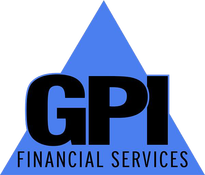|
The next time you visit your bank branch, ask yourself a simple question: “What am I, the small business owner, getting in return?” If your current bank relationship is not supporting your small business initiatives, the time may be ripe for a change. Your deposits are valuable.
Recent consolidation, increasing interest rates and funds flowing out to equity and bond markets have left many banks increasingly focused on gathering and maintaining core deposits. To meet funding needs in excess of their core deposits, many banks have utilized “brokered deposits” to buoy their balance sheets. Banks gather brokered deposits from sources including online banking entities, brokerage sweep accounts and prepaid credit cards. Brokered deposits, however, come with strings attached. They tend to be costly and subject to interest rate changes and increased regulatory scrutiny. In comparison, core deposits -- which include personal checking, savings and small business operating accounts -- are more desirable. In this hyper-competitive deposit market, you have assets that banks desire: your business and personal deposits. Leveraging the value of your deposit account with the appropriate banking partner could create a mutually beneficial relationship that could help drive more attractive financing rates, terms and conditions for your small business initiatives. Make no mistake: When it comes to securing a loan, existing bank clients are viewed differently than a new applicant off the street. Banks commonly question why an applicant who is not a depository customer has to come to them for a loan. Naturally, bankers ask, “Why is the applicant here and not working with their current bank?” It’s important to get to know a banker before extending your hand for financing. Which bank should you choose? Banks typically have expertise in specific industries where they are comfortable extending credit. Small business owners in commercial real estate and agriculture have numerous options. However, entrepreneurs in other industries, especially those in the service sector, may need to spend additional time finding a bank that has the experience and expertise they need. Specific lenders have expertise in specific industries such as dental, veterinarian, wealth management, medical practices and insurance agencies. This enables them to extend credit to borrowers lacking tangible assets that banks typically require. Researching which banks have experience in your industry through peers and industry centers of influence should yield a set of viable options. After discovering a bank that finances businesses in their industry, small business owners commonly focus on the rate offered, yet they fail to ask the questions most critical to their business initiatives: “What percentage of loans in my industry were funded in a Small Business Administration (SBA) versus conventional structure?” and “Do you finance businesses outside of your ‘depository footprint’?” Often, banks desire the protections afforded via the SBA in the event the borrower does not perform as expected. SBA loans offer partial government guarantees to the bank, but they come with advantages (longer terms) and disadvantages (liens on personal residences) for borrowers. Savvy business owners should inquire about the composition of the existing loan portfolio to determine which structure -- SBA or conventional -- that bank utilizes most commonly for the entrepreneur’s industry. Although a bank across the country that does specialize in your industry may gladly take your deposits, it may not lend outside of its depository footprint. Inquire about the bank’s comfort level with supporting your business despite the fact that it may not have a branch in close proximity. Your core deposits have increased value to your bank -- and banks across the street or across the country. Assessing the extent to which you are monetizing the value of your deposits and asking the right questions may lead you to another bank that provides a greater benefit for your aspiring small business. Author: Scott Wetzel J.D. Source: Forbes Media LLC. Retrieved from: www.forbes.com FINRA Compliance Reviewed by Red Oak: 940072
0 Comments
Leave a Reply. |
Media Inquiries(404) 484-3638 Archives
July 2023
Categories
All
|
Licensed in Georgia, Alabama, California, Florida, North Carolina, Ohio, South Carolina, and Virginia
Navigation |
Connect With UsShare This Page |
Contact UsGPI Financial Services2400 Herodian Way SESuite#220
Smyrna, GA 30080 (404) 484-3638 Click Here to Email Us |
Location |
Website by InsuranceSplash


 RSS Feed
RSS Feed